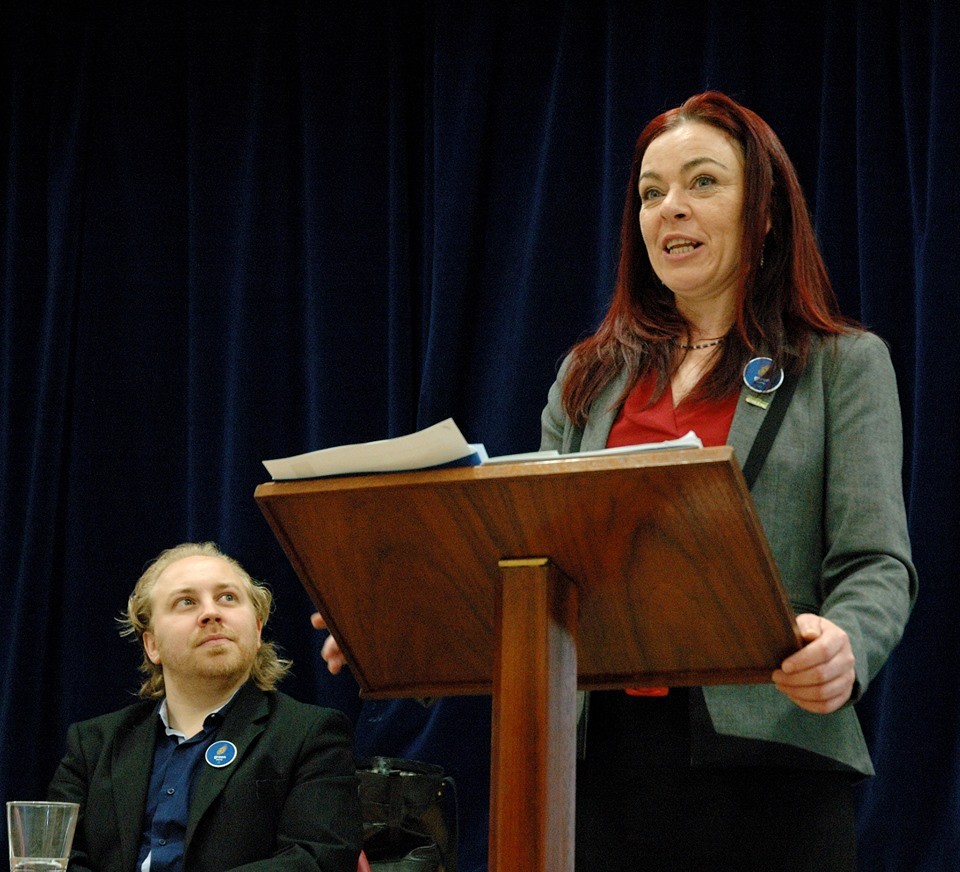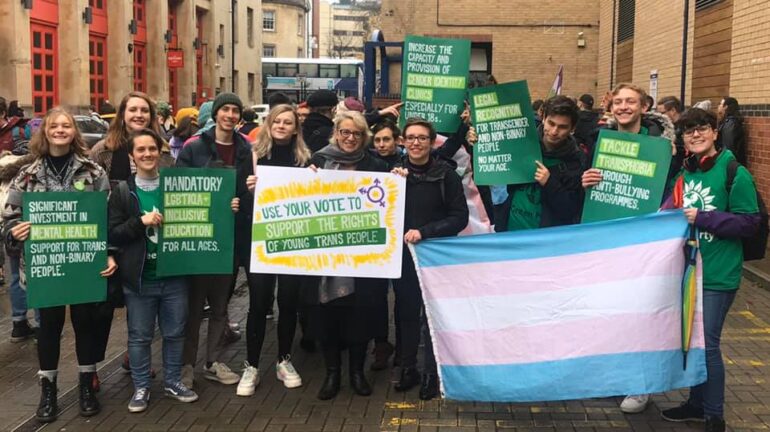Prominent feminist is new Northern Ireland Green Party Deputy Leader

She was elected unanimously to the new Deputy Leader position, which follows the Northern Ireland Green Party’s adoption of a formal role of Leader in 2010, currently occupied by Steven Agnew MLA. The need for a Deputy Leader reflects the growing membership of the party, which is undergoing a steady increase.
With early years spent in Belfast’s Lower Falls Road district and in Antrim during the chaos of conflict, Bailey was one of 28 founder pupils of Lagan College in 1981. At the time, Lagan College was a fledgling radical educational experiment which saw Catholic and Protestant children educated together for the first time, instigated by brave parents and without state funding. It is now a thriving school of 1,100 students. Although sectarianism blighted the lives of everyone, Clare says “the biggest challenges in my life have been gender-based rather than sectarian.”
Politics was all around from an early age. “I grew up in a highly politicised environment. I don’t think there’s a moment I can point to when I ‘became’ political.” Claire shunned formal politics for decades, and was involved in Giros, Belfast’s legendary non-sectarian anarchist collective. She came to the Greens as a mature student at Queen’s University Belfast. “Professor John Barry, a Green Party member, was one of my tutors, and in 2010 a fellow classmate, Adam McGibbon, stood for Westminster… I had voted Green before but as a protest, but it was from there that I made the decision the Greens were for me… It was not a decision taken lightly, but I felt I could join this party and still be me – a feminist, a mother, a woman looking for an alternative politics to support and for my life experience to be included in.”
From there, Clare stood as a Green candidate in the 2011 Assembly election, pushing the Green vote in South Belfast to its highest yet after preferences. She also worked for Green MLA Steven Agnew in the Assembly. There, amongst many other things, she gatecrashed the All Party Pro Life Group, (whose entire membership is made up of middle-aged men) and so perturbed the organisers with her very presence they cancelled the meeting. In the 2014 local elections, she nearly joined Ross Brown on the benches of Belfast City Council (Brown is the first Belfast councillor for the Greens), but was narrowly beaten on the 11th stage of counting by the Ulster Unionist Party’s Graham Craig, who ran an unabashedly racist ‘local homes for local people’ campaign.
She was the driving force being the Greens becoming a pro-choice party in a country where abortion is still a deeply controversial issue. Northern Ireland is the only part of the UK where it is almost impossible for a woman to get a legal abortion. The Greens are the only pro-choice party in the Assembly. On another human right denied to residents of Northern Ireland – equal marriage – Clare is also a prominent campaigner.
She remains an activist. while currently working for a charity supporting victims of sexual violence, she is a prominent member of the Belfast Feminist Network and a volunteer escort for Belfast’s Marie Stopes Clinic, facing down daily abuse from anti-choice protesters who gather outside the centre to accost any woman of child-bearing age entering the clinic. A prominent anti-choice activist was recently convicted of waging a sustained campaign of harassment against the clinic’s director and her family.
Next up for Clare is her candidacy in South Belfast in the general election next year, followed by the 2016 Assembly elections, where the Greens have a real chance of taking an Assembly seat there for the first time. In a political climate where a mandatory power-sharing coalition means that all but a handful of the Assembly’s 108 MLAs are in the government, the Greens have a hugely important role in pushing progressive issues. Whether that’s the under-representation of women (“There’s actually been a fall in the number of women in public life since the peace process began”), the continuing division (“It’s hard to believe that in 2014 we still have such a deeply divided society”) or many other issues, Clare is bound to be at the heart of this.
So many of Northern Ireland’s political class are dull, sour-faced men – Clare Bailey’s rising star is one to watch.
Follow Clare on Twitter: @ClareBaileyGPNI




Leave a Reply